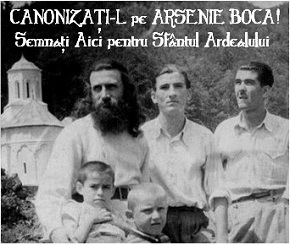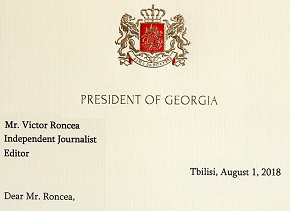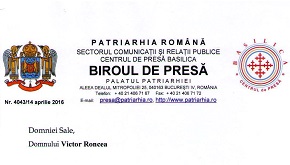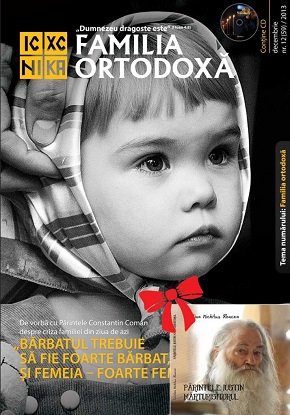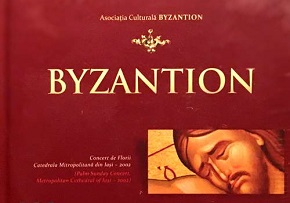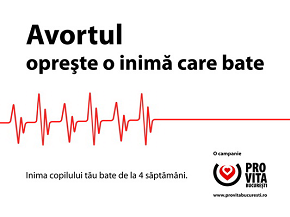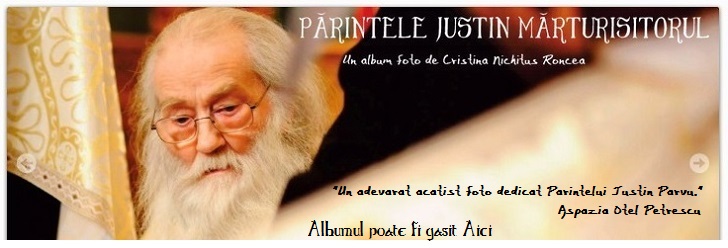 Intr-o editie a emisiunii Nasul la care am participat ieri seara, Bogdan Chirieac, intrat intr-un dialog telefonic cu Radu Moraru, a lasat sa se inteleaga pe tot parcursul convorbirii ca el a stat la masa cu ambasadorul SUA, caruia i-a relatat celebrele povesti disponibile acum pe Wikileaks. Chiar la finalul conversatiei l-a persiflat pe Radu Moraru, afirmand ca degeaba si-ar fi dorit Nasul sa vorbeasca cu ambasadorul daca nu era chemat la Ambasada. Vezi Doamne, Chirieac este dintre cei “chemati”, dintre cei “alesi”.
Intr-o editie a emisiunii Nasul la care am participat ieri seara, Bogdan Chirieac, intrat intr-un dialog telefonic cu Radu Moraru, a lasat sa se inteleaga pe tot parcursul convorbirii ca el a stat la masa cu ambasadorul SUA, caruia i-a relatat celebrele povesti disponibile acum pe Wikileaks. Chiar la finalul conversatiei l-a persiflat pe Radu Moraru, afirmand ca degeaba si-ar fi dorit Nasul sa vorbeasca cu ambasadorul daca nu era chemat la Ambasada. Vezi Doamne, Chirieac este dintre cei “chemati”, dintre cei “alesi”.
Studiind insa exact documentul cu pricina – pe care il reproduc integral mai jos -, fara nici o surpriza am constatat ca “mister” Chirieac nu numai ca nu a stat la nici o cina cu ambasadorul, ci ca discutia s-a desfasurat de fapt cu “DCM”-ul Ambasadei, ceea ce inseamna “Deputy Chief of Mission” – adjunctul sefului de misiune sau “CDA” – Charge D’Affairs – Insarcinatul cu Afaceri, care era la ora aceea Mark Taplin, altfel un profesionist al diplomatiei si un excelent cunoscator al problemelor zonei.
Gandul a facut o treaba buna prezentandu-l pe cel responsabil de fapt, in mare parte, de telegramele transmise Departamentului de Stat american si de politica Statelor Unite fata de Romania, cel putin de aici, de pe teren:
A făcut doi ani de şcoală în România, înainte de 1989, când l-a urmat pe tatăl său, aflat în misiune la Bucureşti
Mark Taplin, fost însărcinat cu afaceri al Ambasadei SUA la Bucureşti (2005 – 2008), este, conform unor surse diplomatice, nu doar autorul formal al unora dintre telegramele secrete expediate la Washington, ci şi autorul moral al telegramelor semnate de fostul ambasador, Nicholas Taubman. Oficial, este autorul telegramei cu topul oligarhilor români şi al celei în care relatează concluziile întrevederii cu Viorel Hrebenciuc, “eminenţa cenuşie” a PSD, care se opunea, pe tăcute, suspendării preşedintelui Băsescu.
Taplin a fost numit, în iulie anul trecut, însărcinat cu afaceri al Ambasadei SUA la Paris.
Diplomat de carieră din 1980, Mark Taplin a călcat pe urmele tatălui său. Conform surselor diplomatice, Taplin senior a fost un diplomat cu rang inferior, activând ani buni inclusiv la Ambasada SUA din Bucureşti în anii 60. Atunci, Taplin jr. era un puşti care a făcut câţiva ani de şcoală în România, ceea ce explică bunele sale cunoştinţe de limba română.
Mark Taplin e licenţiat în ştiinţe umaniste şi afaceri internaţionale la Universitatea Georgetown – Facultatea de Afaceri Externe (1978) şi master în studii strategice la Wales University (1982).
Înainte de a reveni la Bucureşti, într-o poziţie cheie, Taplin a activat la Ambasada SUA din Moscova, ca asistent de ofiţer cultural (1984-1987) şi ca asistent al ofiţerului de comunicare (1994), precum şi la ambasadele sau consulatele din Sao Paulo – Brazilia, Port-au-Prince – Haiti şi Port Louis – Mauritius.
Ulterior, a fost numit consilier pentru Afaceri Publice al Ambasadei SUA din Kiev, Ucraina (1999-2001), şi director adjunct al Biroului de Presă şi Diplomaţie Publică în Biroul Departamentului de Stat pentru Europa şi Eurasia (2001-2002).
În fine, în perioada 2002-2004, Taplin a fost director pentru Ucraina, Moldova şi Belarus în Departamentul de Stat al SUA. În biografia sa, publicată pe site-ul Departamentului de Stat, se precizează că “a contribuit la dezvoltarea politicii americane faţă de Ucraina, în perioada premergătoare alegerilor prezidenţiale din 2004”.
După încheierea misiunii din România, Taplin a predat la Şcoala de Diplomaţie Publică a Universităţii George Washington. A organizat dezbateri publice cu participarea secretarului de Stat Hillary Clinton şi a secretarului Apărării, Robin Gates.
Mark Taplin vorbeşte franceză, română, portugheză, rusă şi ucraineană şi este autorul volumului “Călător prin locuri din Rusia odată interzise”, incheie Gandul.
Cartea a fost tradusa si publicata la noi de Editura Nemira, sub titlul Imperiul Deschis. Mark Taplin, un sustinator real si sufletist al Romaniei, ne-a prezentat si noua lucrarea AXA – Noua Romanie la Marea Neagra, publicata de editura Ziua in 2005 si la a carei lansare a si participat (vezi Foto si Info la Civic Media). Iata prezentarea sa gentila transmisa in scris pentru o contracoperta: “Desi etica Departamentului de Stat nu ne permite sa sprijinim direct cartea dvs, aceasta nu ma impiedica insa sa va felicit pentru alegerea subiectului. Cred ca regiunea Marii Negre revine in atentia comunitatii mondiale si consider ca dvs, alaturi de Charles King si alti scriitori si analisti internationali de marca, aduceti o contributie foarte importanta la intelegerea evolutiei acestei zone in ultimii ani.” – Mark Taplin
Mark Taplin este casatorit (tot) cu o profesionista a diplomatiei, de data aceasta culturale, aflata de asemenea in misiune la Paris.
Iata si o completare a biografiei sale, de la George Washington University
Mark Taplin
Mark Taplin is the Public Diplomcy fellow at George Washington University’s School of Media and Public Affairs, on loan from the U.S. Department of State.
He is a career Foreign Service Officer with the rank of minister counselor. He joined the U.S. Foreign Service in 1980.
From 2005-2008, he served as Deputy Chief of Mission at the U.S. Embassy in Bucharest, Romania. During his tenure, he helped promote a close partnership between the U.S. and Romania. In April 2008, he served as the overall U.S. control officer for the visit of PResident Bush to Romania and for the Bucharest NATO summit, the largest ever held by the Alliance.
From 2002-2004, he served as Director for Ukraine, Moldova, and Belarus at the U.S. Department of State.
He also served as Deputy Director of the Office of Press and Public Diplomacy in the State Department’s Bureau of European and Eurasian Affairs (2001-2002) and Counselor for Public Affairs at the U.S. Embassy in Kiev, Ukraine (1999-2001). His past overseas assignments also include two tours in Moscow, as well as public diplomacy assignments in Brazil, Haiti and Mauritius.
He holds a bachelor’s degree in humanities and itnernational affaris from the Georgetown University School of Foreign Service and a master’s degree in strategic studies from the University College of Wales (Aberystwyth). He is the author of Open Lands: Travels Through Russia’s Once Forbidden Places (Steerforth Press, 1997).
Foto sus: Razvan Chirita / Mediafax – Gandul
“Cablograma” cu pricina mai jos:
E.O. 12958: DECL: 02/13/2016
TAGS: PGOV, RO
SUBJECT: “THE GENIE IS OUT OF THE BOTTLE” — PSD DELIVERS CHARGES AGAINST BASESCU TO PARLIAMENT
REF: A. BUCHAREST 0142 B. BUCHAREST 0086
Classified By: CDA Mark A. Taplin for Reasons 1.4 (b) and (d).
1. (C) Summary: The Social Democratic Party (PSD) delivered to Parliament on February 12 its case for the suspension of President Basescu. In a subsequent briefing for NATO and EU envoys, PSD head Geoana said the suspension motion would first be debated in a joint session of Parliament. Following Basescu’s formal response to the accusation, the motion to suspend would be forwarded to either a special Parliamentary investigation commission or directly to the Constitutional Court. Geoana’s current objective, in addition to unseating Basescu, appears to be to split Prime Minister Tariceanu’s Liberal Party from its alliance with Basescu’s Democrats, and reshape the ruling coalition into a minority government to which the PSD would informally lend its political support and gain leverage over governmental policy.
The hope is that, even if Basescu can survive this concerted political attack, he would be much diminished in stature and influence until the 2008 general elections. Geoana has been more energetic at coordinating this move against Basescu than expected. His orchestration of the campaign against Basescu has shown signs of both hitting its target as well as energizing the Social Democrats and its informal opposition allies. Both Geoana aides and allies in the media painted a picture of a weakened President struggling to stay afloat. We need to make surethat Geoana and other key figures know we are concerned over seeing the Social Democrats line up explicitly with retrograde elements like the Conservative and Greater Romania parties in order to topple a popularly elected President and a reformist Justice Minister. End Summary.
2. (SBU) On February 13, the president of the opposition Social Democratic Party (PSD) Mircea Geoana invited NATO and EU member embassies to PSD headquarters in order to share the formal list of accusations against President Traian Basescu that are to provide the basis for his proposed suspension. The fourteen page (two-sided) document entitled “Proposal to Suspend the Functions of the President of Romania, Traian Basescu” is addressed to the President of the Senate, Nicolae Vacaroiu and the President of the Chamber of Deputies, Bogdan Olteanu. Geoana said he did not expect all of the complaints to be supported when the petition was submitted to the Constitutional Court following Parliamentary debate. The charges range from constitutional violations as a result of Basescu’s “authoritarian rule”; to actions that allegedly violated the Constitutional separation of powers; to usurpation of Parliament’s authority to create government agencies; to exploiting the intelligence agencies and other government offices for political ends, among other accusations great and small.
3. (SBU) Geoana told the diplomatic representatives that the “genie is out of the bottle” and the time to create a new balance within Romanian governing institutions had arrived. He described Basescu as the “sole catalyst” of the political scandal, having systematically attacked the constitution, the institutions and the opposition political parties from the first day of his presidency. Basescu became the very source of corruption that he claimed he was trying to root out, according to Geoana. The PSD president stressed that while the legal component of the charges against Basescu were serious offenses, there were also complaints that were “extra-constitutional” and could not be readily proved. As examples, he cited the forming of a government out of a different majority than that which was originally elected in 2004, and using the intelligence services to electronically eavesdrop on the conversation of Basescu’s political opponents. The PSD strategy is to provide the Constitutional Court, which is constitutionally mandated to make a non-binding ruling on the charges for suspension, a menu of accusations from which more compelling arguments can be put to a vote in a joint session of Parliament.
4. (SBU) Geoana was expansive on the reasons why the PSD was making this move against Basescu now. The time for a debate
on the constitutional limits of presidential power was long overdue, he maintained. The tensions between the President and National Liberal Party (PNL) Prime Minister Calin Popescu Tariceanu have created a situation that makes Romania “ungovernable.” Geoana complained that Basescu’s instincts were anti-democratic and anti-European, that Basescu did not support checks and balances or power-sharing. “Basescu is a threat to the Constitution,” Geoana accused, adding that only by pursuing suspension could the PSD hope to begin serious conversations about the structure of a new government, even a minority one. Geoana cautioned that if PM Tariceanu were to accept “certain basic democratic principles,” he could survive, and the PSD would support a minority PNL-led configuration. Otherwise, the Social Democrats were prepared to move forward with a vote of no-confidence against the government. Geoana claimed that Tariceanu had accepted a PSD invitation to discuss the way ahead with all of the political parties. A decision to postpone European Parliamentary elections was quite feasible, according to Geoana, so that they could be held once the political turmoil had subsided.
5. (SBU) Geoana eagerly noted “the related but separate issue” concerning today’s parliamentary discussion to censure Justice Minister Monica Macovei, who is facing a censure motion led by the Conservative Party (PC) for abuse of office and for tilting towards Basescu and against his opponents. Macovei’s future would be a test of the Liberal’s willingness to hold firm to their weakening alliance with Basescu and his Democratic Party (PD). If Tariceanu were to insist on standing firm with the PD, Geoana threatened, then the PSD would use all parliamentary measures to break the Alliance. Tariceanu could not assume it would be possible to continue as “Saint Mary” since he was just as guilty as Basescu for the current political crisis. A vote of no-confidence, Geoana insisted, would be a relatively simple move. At the same time, the PSD president insisted that once Basescu was suspended and an interim president named — either Senate President Vacaroiu from the PSD, or in his absence Liberal Chamber of Deputies President Bogdan Olteanu — the PSD would not use the interim period to “abuse” Romania’s political system. Geoana underlined that the PSD did not want to share power under these circumstances, and would stay in the loyal opposition until the 2008 regular schedule for general elections. Geoana emphasized, in a formula that stretches credulity, that the PSD “does not want to be perceived as using this opportunity to make political gains.”
6. (SBU) Geoana said following debate in Parliament — where Basescu has an opportunity to answer the charges against him — a joint Parliamentary investigations committee might be formed before the petition to suspend the President is referred to the Constitutional Court for review. In any event, following the Constitutional Court’s non-binding review, Basescu would be granted another opportunity to address the joint session of Parliament before the vote to suspend him. The timing for suspension could vary depending on which path Parliament chooses. The short path — forwarding the petition directly to the Court — could take a few days (as occurred in 1994 in the first Iliescu presidency) to as much as a month; there is no fixed time frame. The long path — forming a investigations committee within Parliament to review the facts and report to a joint session to be followed by the Court’s ruling — could take several weeks. Either way, if Basescu is suspended then the government under an interim President would have an additional 30 days to organize a referendum to remove Basescu permanently.
7. (SBU) Since the launch of the suspension effort, Geoana claimed, the PSD base has been “re-energized.” While he still labeled success against Basescu in a referendum as a long-shot, he stressed that every vote against Basescu diminished his power, and brought the political institutions back into balance. He acknowledged that it was possible for Basescu to survive the attack against him, but when he returned to office from being suspended, Basescu would not be “the only man on the plantation.” He stressed again that the suspension effort was necessary not only to limit Basescu’s presidential power, but also his tendency to abuse the judiciary, the prosecutors, the intelligence services, and the military for his own political purposes. Geoana said there was no unanimity even within the PSD, where the older generation believed the current system was okay, while the younger members believed change was needed to become more “European.” In two-three years time, within the EU, it would become clearer to citizens what should be the limits of power and how far can Romania go in its decentralization.
8. (C) Following Geoana’s presentation, Charge and Acting Political Chief met informally with PSD Vice President and spokesperson Christian Diaconescu and one of his aides. While the ongoing political confrontation was a matter for Romanians to work out among themselves, we stressed, the growing political turmoil risked damaging Romania’s standing in the U.S. and with other key partners. We could not
comment on the merits of the PSD’s constitutional case, only express our hope that the suspension effort be resolved in a democratic, responsible and transparent way. We had taken note, however, of the fact that the Social Democrats had aligned themselves with several problematic political groups in pursuing this effort, especially the right nationalist Greater Romania Party of Vadim Tudor. This was likewise the case in the censure motion against Justice Minister Monica Macovei. Some observers might conclude that the effort as a whole was being supported by elements from Romania’s past that were trying to reassert their dominance over the country’s political and economic life. By its own admission, the PSD’s efforts to reform internally — to put its own house in order — was incomplete. It was vital, we stressed, that Romania continue to build on its success of the past two years in reforming the justice system and combatting corruption. Diaconescu, in turn, was emphatic that removing Basescu would not entail forming political alliances with any of the xenophobic extreme-nationalists like Vadim Tudor’s Greater Romania Party or Gigi Becali’s New Generation Party. Diaconescu acknowledged there was still controversy within the PSD about the prospects of aligning itself with the Liberals, but confirmed a minority PNL-led government, with PSD acquiescence, was a possibility.
9. (C) Meanwhile, the Bucharest political scene continued to churn furiously. Editor-in-chief of the “Gandul” newspaper and prominent TV commentator Bodgan Chirieac told DCM on 2/12 that most of the Romanian media and political class had now turned against Basescu. Chirieac, who has close relations with Geoana and other PSD members, spoke approvingly of Geoana’s high-profile role, emphasizing that the PSD leader was finally hitting his stride as a political figure and communicator. “He’s performing as he should — as the leader of a true opposition,” Chirieac insisted. The journalist claimed that the driving force inside the PSD in the effort to suspend Basescu was “the Cluj group,” an important faction within the PSD led by Ioan Rus that helped secure the party presidency for Geoana in 2006. He listed Rus ally and Cluj strategist Vasile Duncu as the “mastermind” behind the dump Basescu effort, rather than former President Iliescu and his longtime political advisor Hrebenciuc. Duncu is thought to be the inspiration behind Geoana’s re-branding as an uncompromising, firebrand anti-Basescu critic.
10. (C) Chirieac maintained that there was now active coordination among the opposition parties and the oligarchs who control the top national media, with the objective of undermining Basescu’s popular standing. Although Realitatea TV owner Sorin Ovidiu Vantu had once been on positive terms with Basescu, and had allowed the Romanian president to receive plentiful coverage during the 2004 presidential campaign, Chirieac listed several compromising stories which would be launched in the media during the 30-day Presidential suspension period. He claimed that a recording of a phone call among associates of Omar Hayssam, the Syrian-Romanian businessman who masterminded the 2005 kidnapping of three Romanian journalists in Baghdad, would confirm that the Romanian government, at Basescu’s orders, had paid a multi-million dollar ransom for the release of the hostages. This, it was calculated, would seriously damage Basescu’s support in Washington. Other major allegations would surface concerning senior officials around Basescu, including National Security Advisor Sergiu Medar, who allegedly was implicated in a kickback scheme involving a European aircraft manufacturer (nfi). The opposition hoped to be able to capitalize further on recent revelations about Basescu’s service as a Ceaucescu-era Romanian representative in the port of Antwerp, but Chirieac was more skeptical about their potential impact on the Romanian public. Other deals and schemes that date back to Basescu’s days as Mayor of Bucharest, however, would reveal a pattern of insider deals and corrupt payoffs. According to Chirieac, Liberal Party financier and energy magnate Dinu Patriciu, who also owns a number of leading media outlets, was particularly bent on bringing Basescu to his knees.
11. (C) Basescu’s popularity, Chirieac claimed, was already falling. Chirieac mocked the President’s claims of support from average Romanians made before an audience of EU chiefs of mission several weeks ago in Bucharest. “Can you imagine,” Chirieac said, “that Basescu bragged to the Europeans that his picture is in every house in the countryside, just like Ceaucescu used to say!” Chiriac claimed that Basescu’s drinking had taken a turn for the worse, and that the President’s advisors were at each other’s throats. He related that Cotroceni communications director Adriana Saftoiu had recently been reprimanded by the President for having revealed to journalists that former Basescu chef-de-Cabinet and political advisor Elena Udrea was spending hours at a time closeted with Basescu behind closed doors. Only the stronger figures in Basescu’s Democrat Party, specifically Minister of Interior Vasile Blaga and Minister of Defense Sorin Frunzaverde, seemed to have the nerve to keep the PD house in order.
TAPLIN
“Desi etica Departamentului de Stat nu ne permite sa sprijinim direct cartea dvs, aceasta nu ma impiedica insa sa va felicit pentru alegerea subiectului. Cred ca regiunea Marii Negre revine in atentia comunitatii mondiale si consider ca dvs, alaturi de Charles King si alti scriitori si analisti internationali de marca, aduceti o contributie foarte importanta la intelegerea evolutiei acestei zone in ultimii ani.”
Mark Taplin
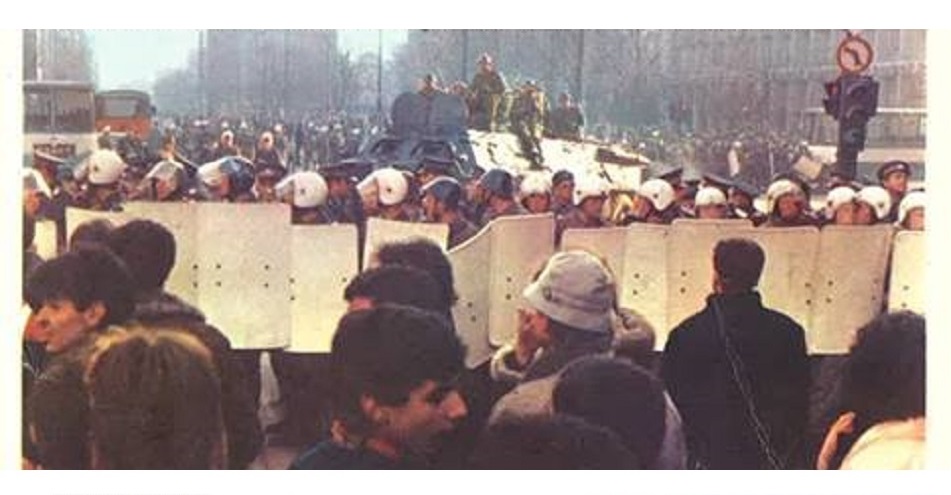
 March 29th, 2011
March 29th, 2011  VR
VR 
 Posted in
Posted in  Tags:
Tags: 






